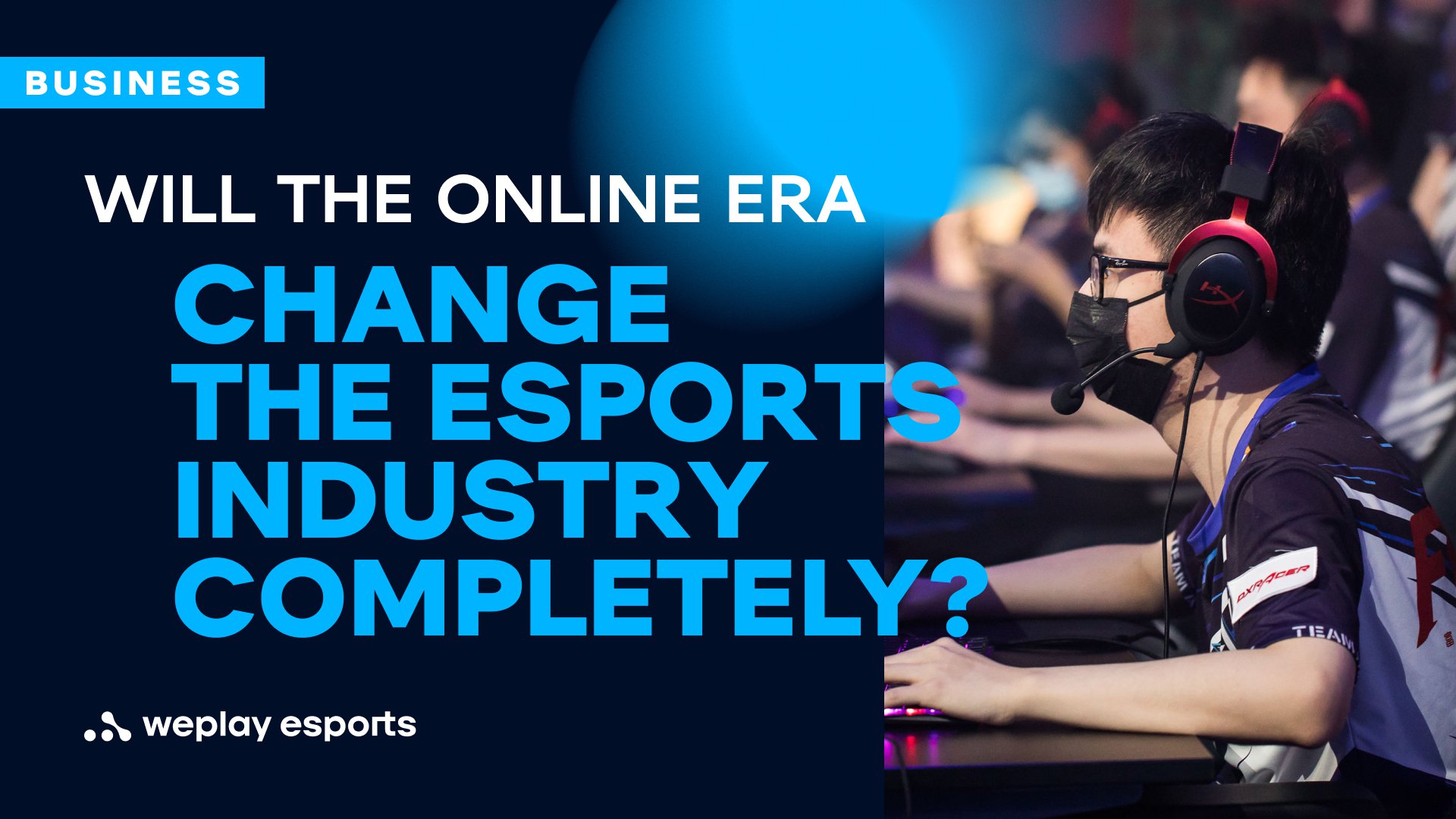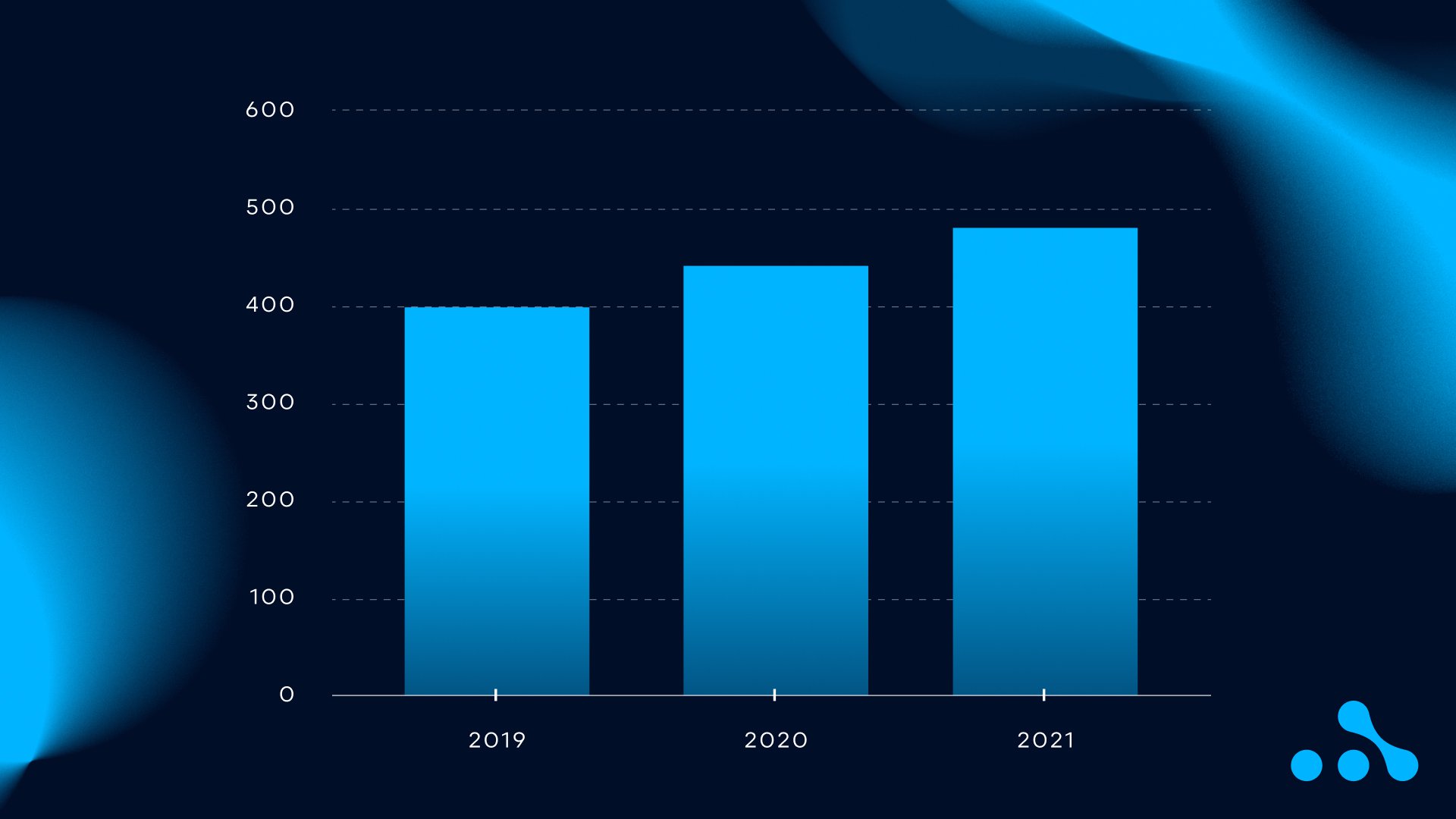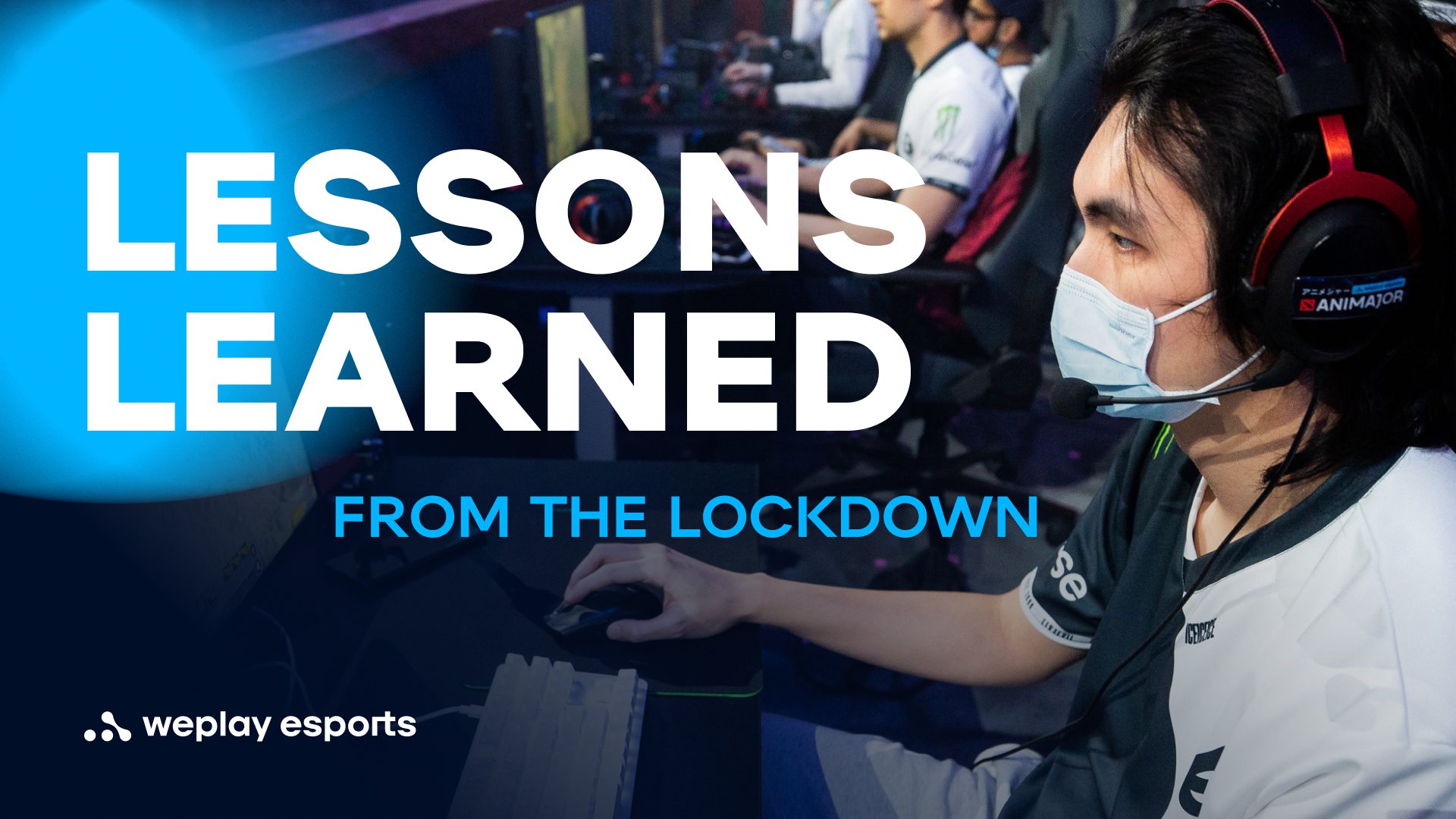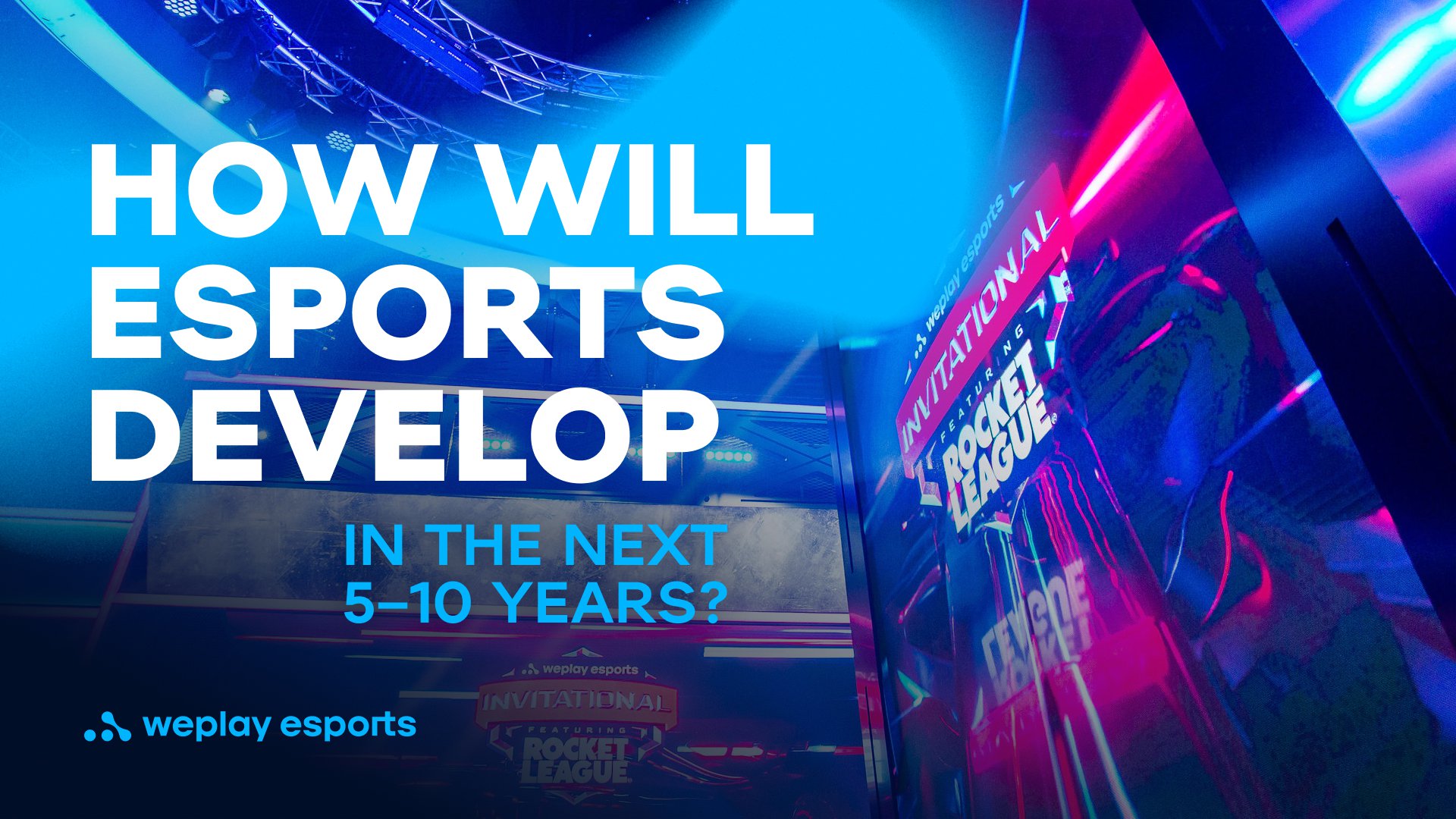Jan. 14, 2022
Will the online era change the esports industry completely?

4 min read
The COVID-19 has had a powerful impact on business. The esports industry was not immune, either.
The COVID-19 pandemic became a pivotal event for the entire world. All industries have had to change their business models and adapt to new requirements, including esports. Since public gatherings were restricted, esports organizations either postponed LAN tournaments or shifted to an online-only format.
In 2020, the global lockdown led to The International and CS:GO Major being canceled. However, esports quickly went back to normal and started hosting LAN tournaments again, albeit without spectators. WePlay Holding held one of the two DPC Majors of 2021, WePlay AniMajor, uncovered a new title with the WePlay Esports Invitational featuring Rocket League, and initiated the Tier-2 scene for up-and-coming players with the WePlay Academy League.
The online format couldn’t cover all the audience’s needs, but it was the only option for esports to continue creating vibrant events and producing content. Esports fans understood it and kept supporting the industry, and so the audience and viewership grew during the pandemic. Since 2019, the esports audience has increased from 397 million to 474 million, according to Statista. In addition, the number of esports enthusiasts grew by 37 million.
The pandemic opened up new opportunities
While people had limited entertainment options and were trying to get the most out of esports as the only way to connect with friends, esports companies seized the unique opportunity to use the hardship as an impetus for development.
As the world was changing inexorably, WePlay Holding began laying the groundwork to help the industry develop further. Therefore, the company decided to build its second esports arena in Los Angeles. Bright events attract more viewers and stick in their memory for a long time. But to create such an event, organizers need a lot of resources, and not just any rented venue will lend itself to all their ideas. The WePlay Esports Arena Los Angeles solved this problem. Plus, with a second WePlay Holding venue available, the company can now hold several tournaments in different disciplines simultaneously.
Another WePlay Holding initiative is a Tier-2 scene for young CS:GO players. Together with eight leading CS:GO organizations, the company produced the WePlay Academy League, a series of tournaments for youngsters, contributing to the discipline’s future.
Lessons learned from the lockdown
A logical question arises: If esports has proven that it works nicely in the digital realm, does it make sense to return to the LAN tournament format as we used to know it?
Tournaments without spectators were a necessary measure in the fight against the pandemic. However, after a long hiatus, the first CS:GO Major LAN tournament — the PGL Major Stockholm — has surpassed 2.5 million concurrent viewers, setting an absolute record among all CS:GO Majors. All online tournaments in 2020 and 2021 only fueled the demand for real LAN tournaments with spectator admission. The success of the PGL Major proves that the online format cannot wholly replace offline events. However, in the future, the number of real-life competitions may decrease slightly to fuel interest in the most significant events.
How will esports develop in the next 5–10 years?
The impact of the pandemic is likely to be felt forever. Event organizers will continue to monitor visitors’ temperature, provide hand sanitizer for all, and so on. This is probably for the best, though.
Fans are used to the LAN format, but the pandemic has changed the organization of esports competitions as we knew them. Turns out that online tournaments do not lag far behind offline events on the score of popularity. The main insight companies got from the lockdown is that holding online tournaments only fuels people’s interest in offline events.
There was a time when esports events were held entirely offline. Now, companies have realized how to work sticking to the online-only format. By combining both, esports can build a development strategy for the next 5–10 years.



